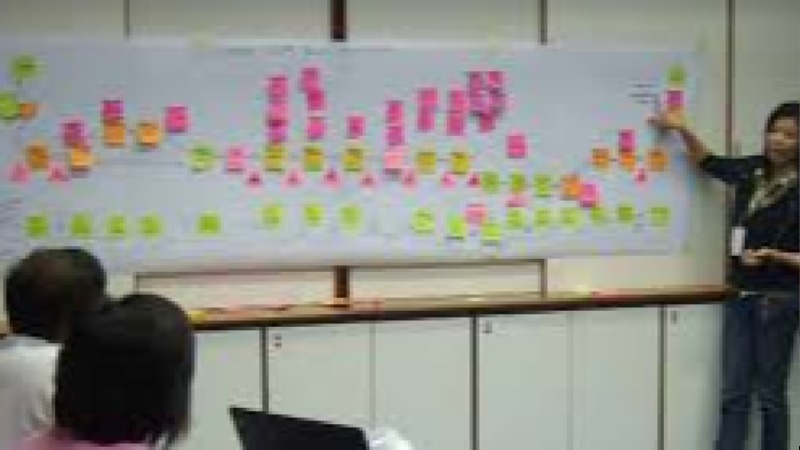Value Stream Mapping Training Course
Value Stream Mapping Training Course is a critical lean management tool designed to help organizations visualize, analyze, and improve the flow of materials and information required to deliver a product or service.

Course Overview
Value Stream Mapping Training Course
Introduction
Value Stream Mapping Training Course is a critical lean management tool designed to help organizations visualize, analyze, and improve the flow of materials and information required to deliver a product or service. This training equips participants with practical knowledge to identify inefficiencies, streamline operations, and eliminate waste across processes. By integrating lean principles with process optimization strategies, professionals will gain actionable insights to enhance overall organizational performance.
In today’s competitive landscape, adopting Value Stream Mapping provides organizations with a structured way to foster continuous improvement, enhance productivity, and maximize customer satisfaction. This course will empower participants to master mapping techniques, assess bottlenecks, and implement sustainable solutions aligned with industry best practices. Through case studies and practical exercises, learners will be well-prepared to drive transformation initiatives in manufacturing, service industries, healthcare, and beyond.
Course Objectives
- Understand the fundamentals of value stream mapping in lean management.
- Identify key processes and eliminate waste in workflows.
- Enhance operational efficiency using lean and Six Sigma principles.
- Apply process visualization tools for end-to-end mapping.
- Streamline information flow for optimized communication.
- Recognize bottlenecks and improve cycle times.
- Align value streams with customer-centric strategies.
- Use lean metrics for monitoring and continuous improvement.
- Integrate digital tools for smart process mapping.
- Develop problem-solving capabilities with lean thinking.
- Create future-state maps to support business goals.
- Implement actionable strategies for sustainable growth.
- Drive organizational transformation with value-driven leadership.
Organizational Benefits
- Improved process efficiency and productivity.
- Reduction of waste and unnecessary costs.
- Enhanced cross-functional collaboration.
- Better alignment of operations with strategic goals.
- Increased customer satisfaction and retention.
- Optimized use of resources across departments.
- Faster cycle times and improved lead times.
- Data-driven decision-making for continuous growth.
- Stronger competitive advantage in the market.
- Sustainable organizational improvement culture.
Target Audiences
- Operations managers
- Process improvement professionals
- Lean Six Sigma practitioners
- Supply chain managers
- Quality assurance teams
- Healthcare administrators
- Manufacturing supervisors
- Business analysts
Course Duration: 5 days
Course Modules
Module 1: Introduction to Value Stream Mapping
- Definition and importance of value stream mapping
- Role of VSM in lean transformation
- Types of value streams in organizations
- Core principles of lean methodology
- Differences between current state and future state mapping
- Case study: Manufacturing industry introduction to VSM
Module 2: Identifying Value Streams
- Understanding value creation versus non-value activities
- Process identification techniques
- Mapping value from customer perspective
- Analyzing end-to-end workflows
- Building organizational alignment
- Case study: Service industry process identification
Module 3: Tools and Symbols of VSM
- Standard symbols used in VSM
- Information and material flow mapping tools
- Developing process maps step by step
- Using digital tools for mapping
- Visualizing workflows effectively
- Case study: Healthcare mapping tools application
Module 4: Current State Mapping
- Gathering process data and inputs
- Techniques for current state documentation
- Identifying existing inefficiencies
- Mapping process touchpoints
- Common errors in current state mapping
- Case study: Retail industry process mapping
Module 5: Future State Mapping
- Principles of designing a future state
- Eliminating waste through streamlined processes
- Aligning with organizational goals
- Role of technology in future state mapping
- Developing improvement roadmaps
- Case study: Future state design in logistics
Module 6: Identifying Waste in Value Streams
- Understanding the seven wastes in lean
- Techniques for detecting inefficiencies
- Reducing delays and redundancies
- Waste elimination strategies
- Root cause analysis
- Case study: Waste elimination in manufacturing
Module 7: Lean Metrics and KPIs
- Key performance indicators for lean systems
- Metrics for process efficiency measurement
- Monitoring cycle times and lead times
- Data-driven performance tracking
- Benchmarking best practices
- Case study: KPI improvement in healthcare
Module 8: Implementing VSM Projects
- Structuring VSM project teams
- Aligning stakeholders with project goals
- Communication strategies in VSM initiatives
- Integrating VSM into organizational processes
- Sustaining VSM results long-term
- Case study: VSM implementation in supply chain
Training Methodology
- Interactive lectures with real-world examples
- Hands-on exercises using VSM tools and templates
- Group discussions for collaborative learning
- Case studies for industry-specific applications
- Simulation activities for practical engagement
- Continuous feedback and Q&A sessions
Register as a group from 3 participants for a Discount
Send us an email: [email protected] or call +254724527104
Certification
Upon successful completion of this training, participants will be issued with a globally- recognized certificate.
Tailor-Made Course
We also offer tailor-made courses based on your needs.
Key Notes
a. The participant must be conversant with English.
b. Upon completion of training the participant will be issued with an Authorized Training Certificate
c. Course duration is flexible and the contents can be modified to fit any number of days.
d. The course fee includes facilitation training materials, 2 coffee breaks, buffet lunch and A Certificate upon successful completion of Training.
e. One-year post-training support Consultation and Coaching provided after the course.
f. Payment should be done at least a week before commence of the training, to DATASTAT CONSULTANCY LTD account, as indicated in the invoice so as to enable us prepare better for you.